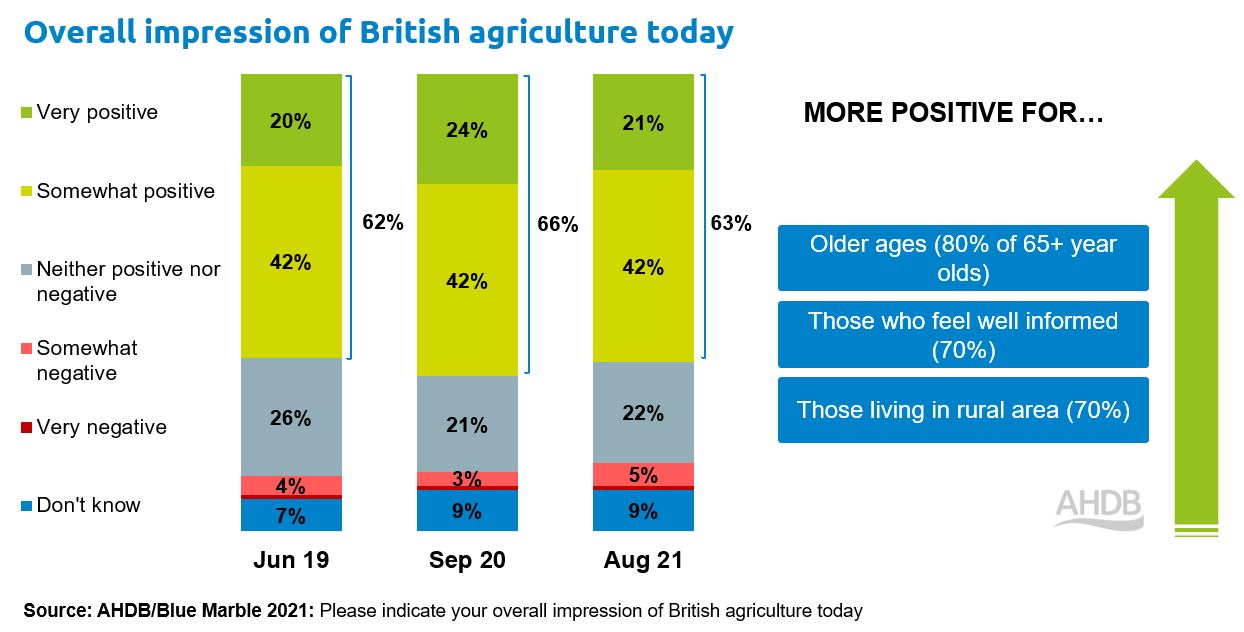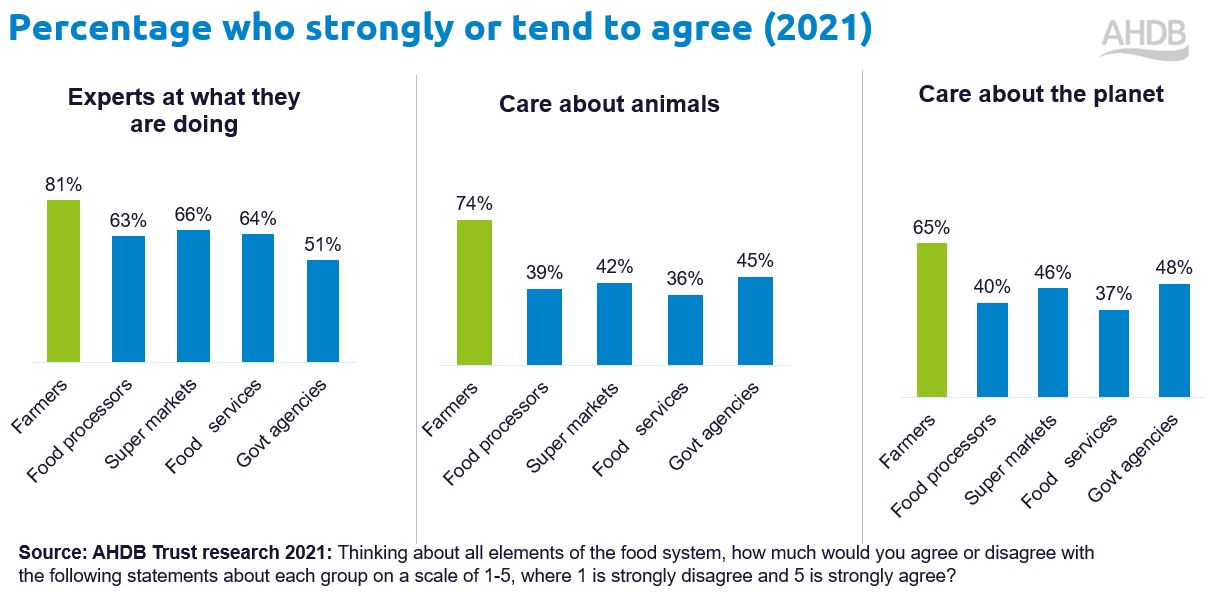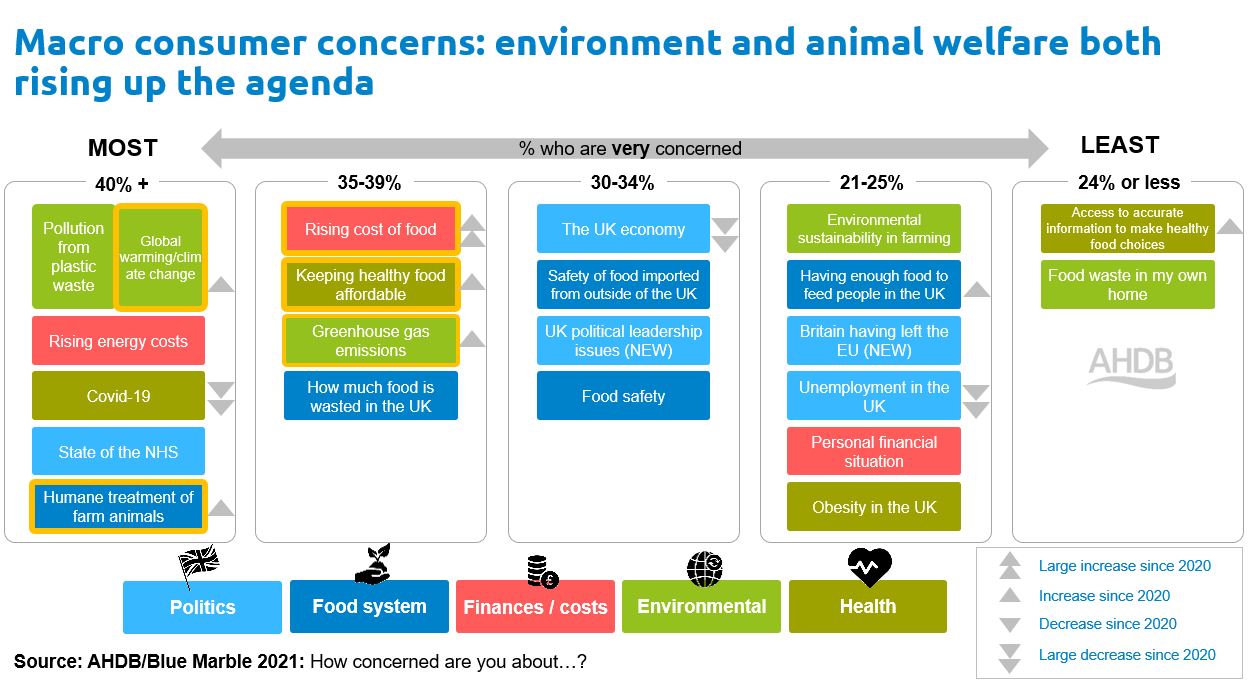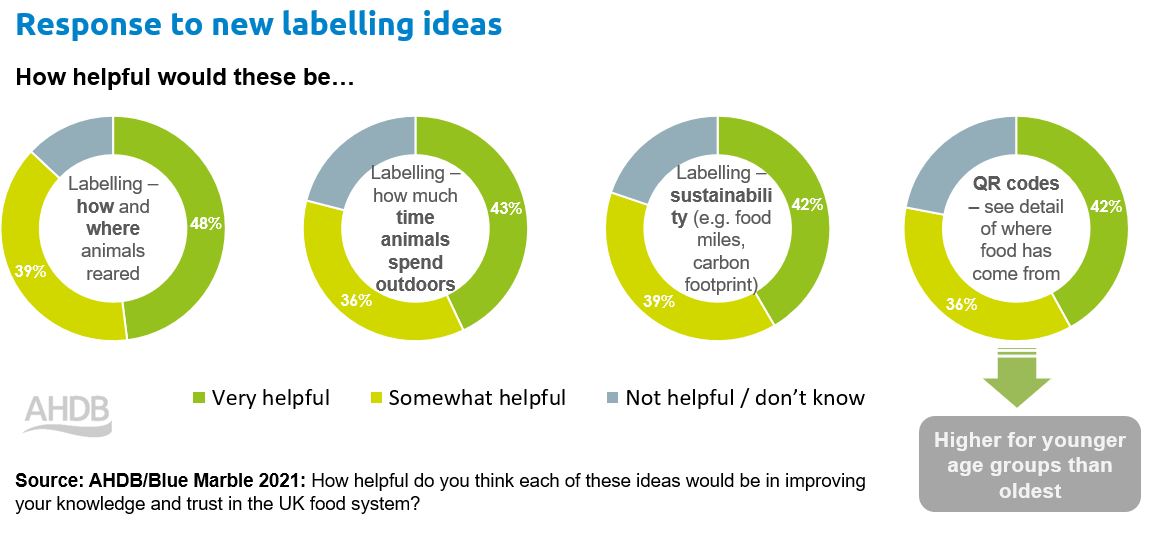- Home
- News
- Farmers continue to be the most trusted part of the supply chain, but there is continued demand for transparency
Farmers continue to be the most trusted part of the supply chain, but there is continued demand for transparency
Friday, 3 December 2021
AHDB have been monitoring consumer trust in our food system since 2019, focussing on agriculture and the reputation of farming. The latest results of our AHDB/Blue Marble study show that consumer perceptions of agriculture remain very positive with almost two thirds (63%) feeling very or somewhat positive towards British agriculture. Last year consumers were particularly positive due to the effects of the pandemic but 2021’s results are in line with 2019.
Farmers lead on animal welfare and sustainability perceptions
Farmers remain by far the most trusted group in the supply chain with 70% of consumers trusting them compared to 53% for retailers, the next most positive group. Consumers value farmers, over other parts of the supply chain, for their expertise and for caring about the environment and animal welfare. Retailers, in particular, have raised their game and made progress in animal welfare and sustainability perceptions, beginning to narrow the gap to farmers.
Changing societal concerns
2021 has been a year of flux in many ways: whilst there has been some return to “normality” as we learn to live with Covid, other events such as the UK’s hosting of COP26, new trade deals on the horizon as well as the Dimbleby Food Strategy and associated reporting of these have brought many issues to the forefront of consumers’ minds.
This is demonstrated in the types of issues that consumers see as the biggest issues facing society. In 2019 this was Brexit, in 2020 Covid-19 but for 2021 the joint biggest issues of concern are both now environmental – 48% are very concerned about both plastic pollution and climate change. Similarly, animal welfare has risen up the order of concern as well and now sits in the top tier.
Need for transparency to build trust
Consumers are increasingly being subjected to a barrage of often negative information about where their food comes from. 86% of consumers claim that the welfare of animals is important to them (Source: IGD Shopper Vista, October 2021) although the responsibility for ensuring this is often assigned to retailers or assurance schemes. However, there are signs that consumers would like to see greater transparency when choosing food to aid their decision making. 87% would find it helpful to have labelling on how and where animals are raised, 79% on how much time animals spend outdoors and 81% labelling sustainability. Covid-19 has raised the profile of QR codes as a potential mechanism to deliver such information as consumer familiarity with the technology has grown.
When considering labelling it is vital that any schemes consider animal health and welfare outcomes rather than purely system of production as consumers are concerned about a whole spectrum of welfare issues unrelated to outdoor access.
We covered some of these issues relating to trust and the reputation of agriculture and the supply chain in depth at our consumer landscape webinar which you can catch up on now
Topics:
Sectors:
Tags:






.jpg?v=637780249400000000)

